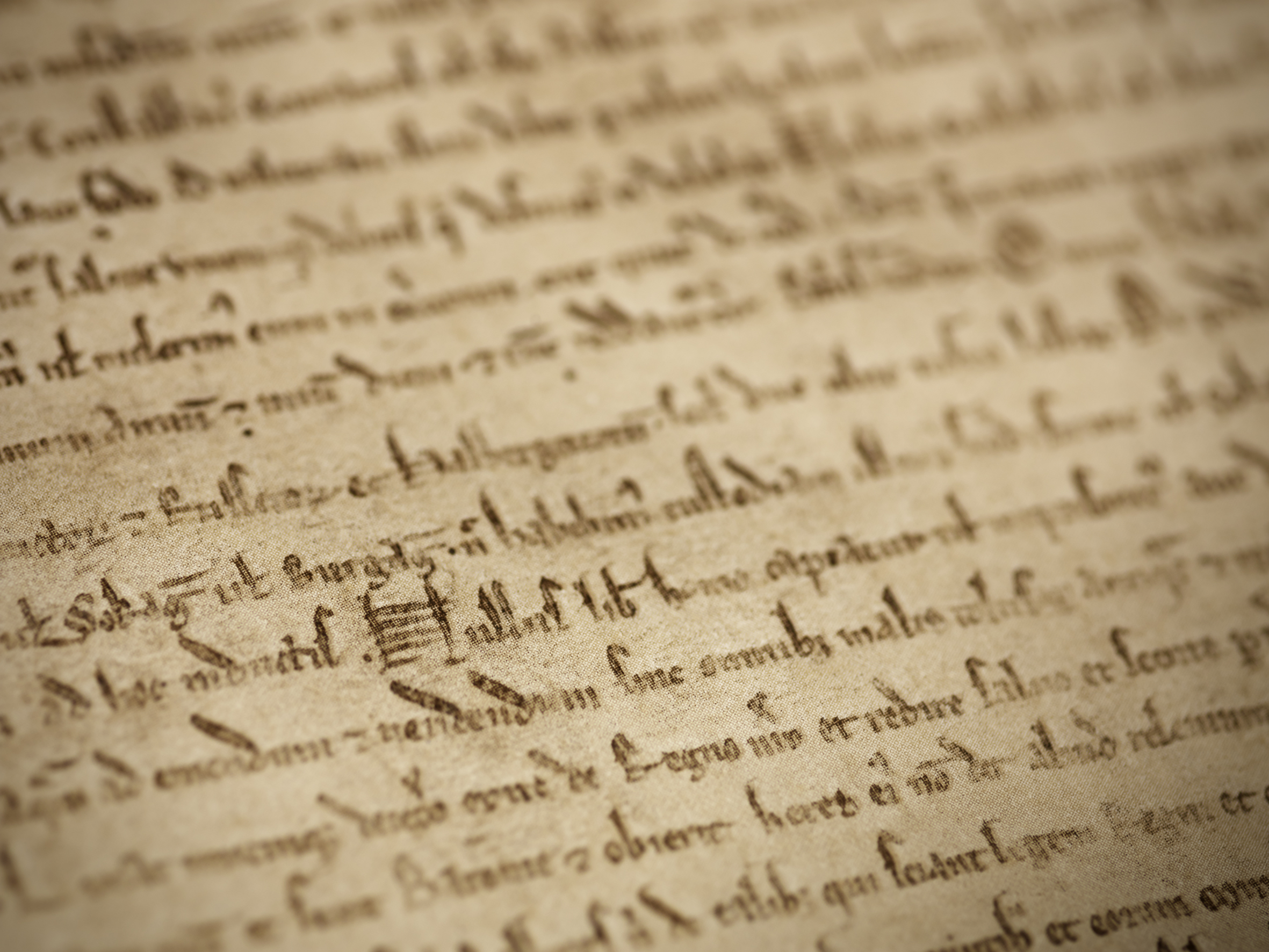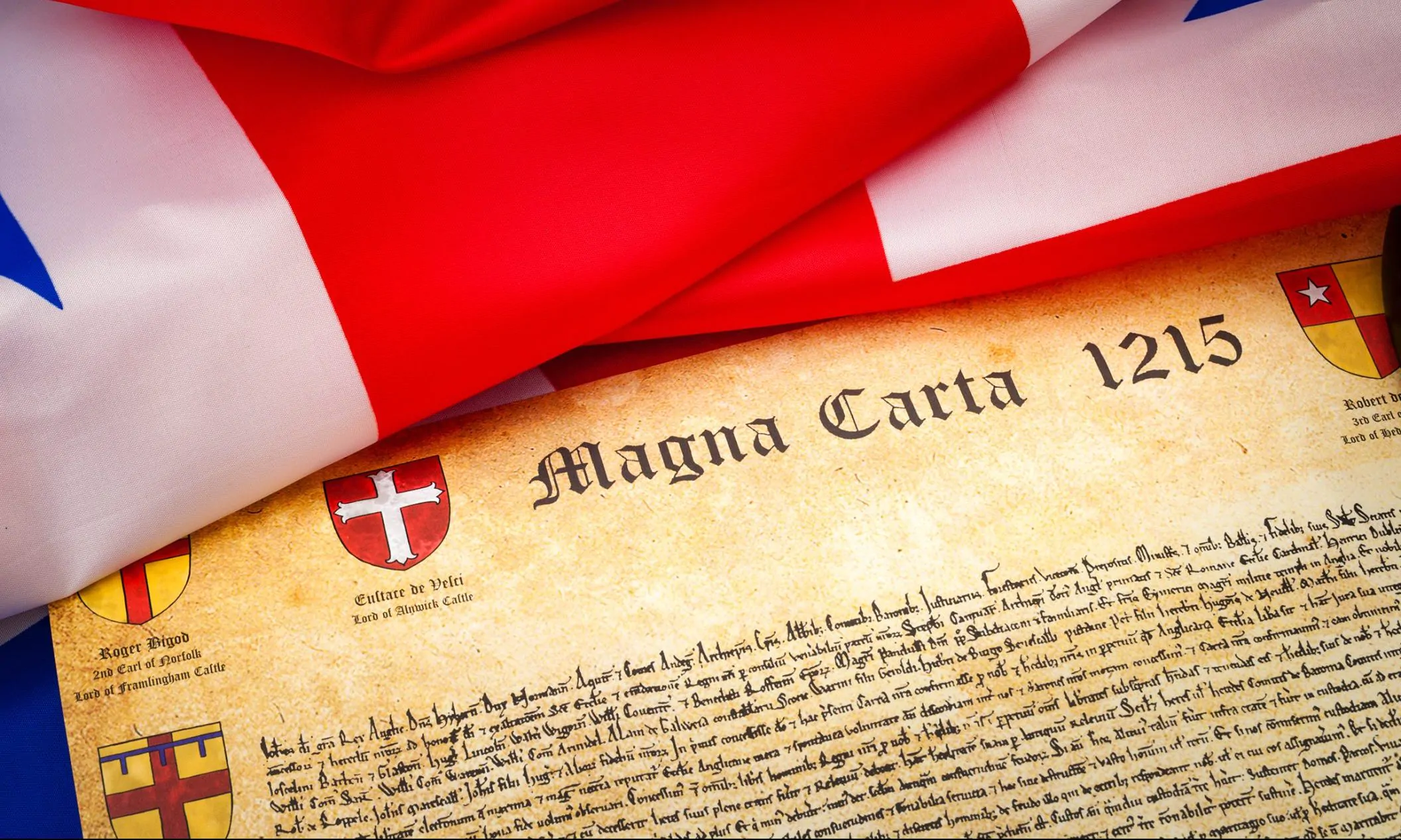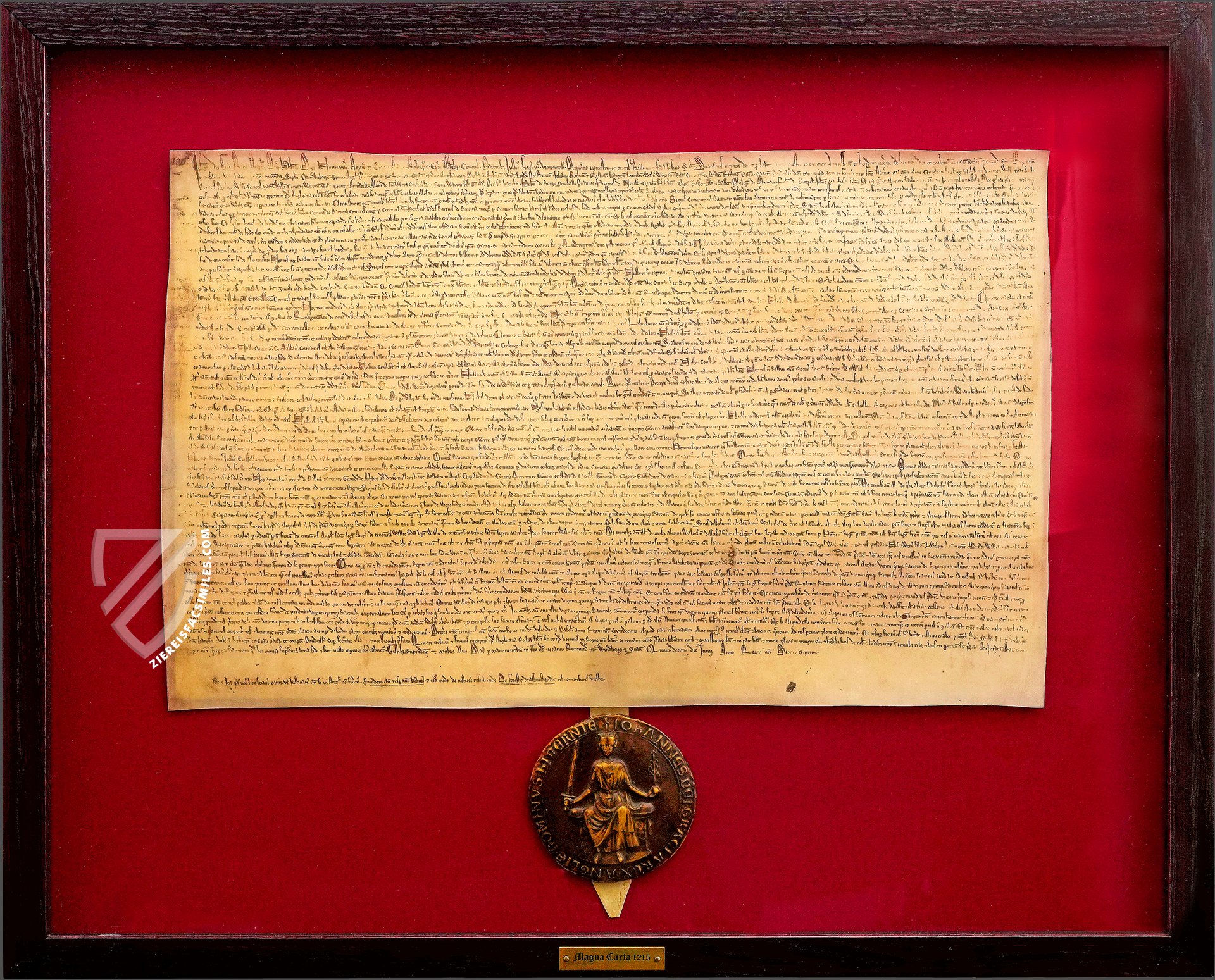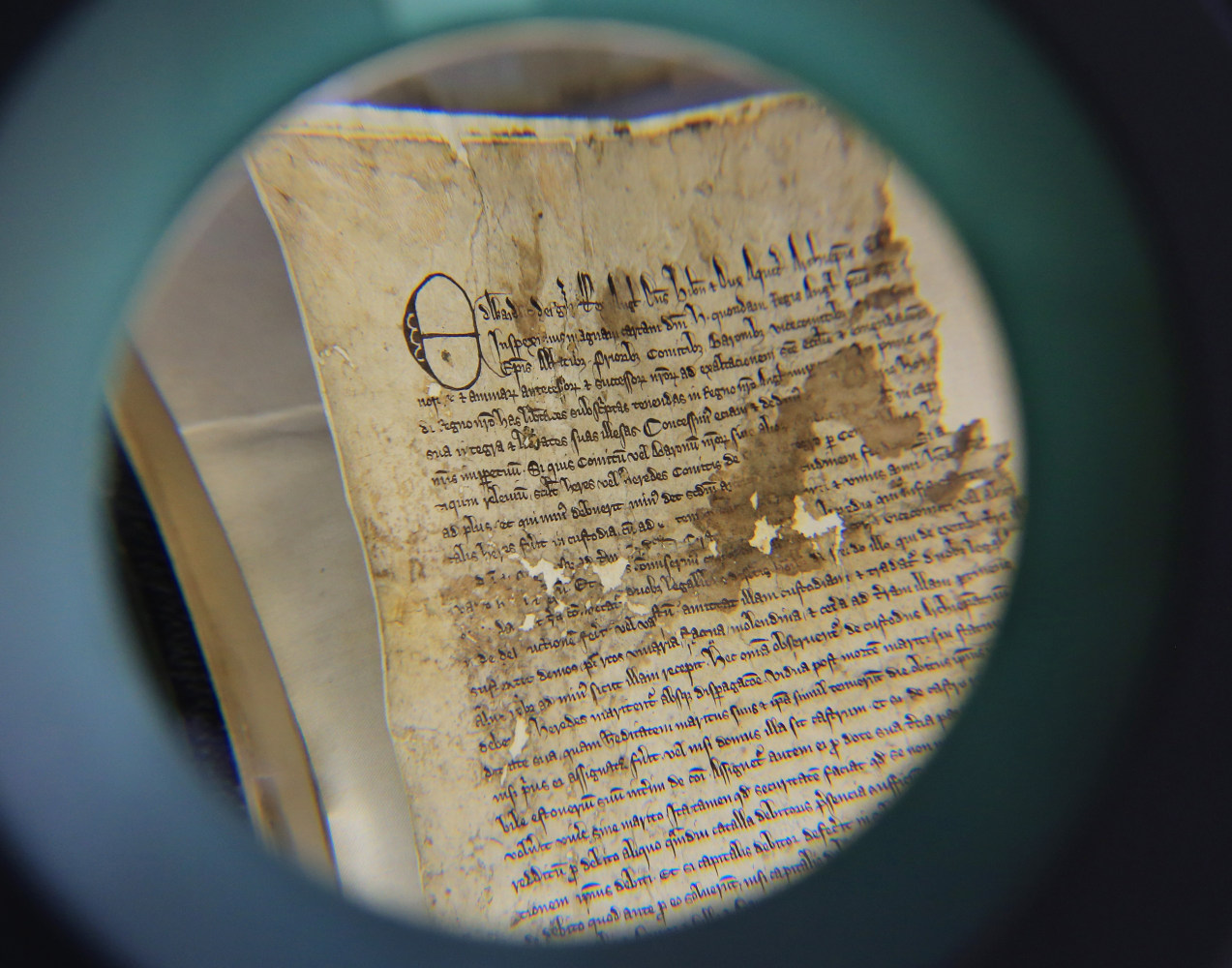The Magna Carta, a pivotal document in the annals of history, stands as a testament to the enduring struggle for freedom and the rule of law. Its significance has reverberated through centuries, shaping the development of constitutionalism and human rights worldwide.
From its origins in 13th century England, the Magna Carta has played a transformative role in shaping legal systems and democratic ideals. Its principles have inspired revolutions, influenced constitutions, and continue to resonate in modern society.
Historical Context

The Magna Carta, meaning “Great Charter,” holds immense historical significance as the first document to limit the powers of a monarch and establish the concept of due process and the rule of law. Its creation in 1215 marked a pivotal moment in the development of constitutional government and the protection of individual rights.
The charter emerged amidst a backdrop of growing tensions between King John and his barons. John’s oppressive rule, characterized by excessive taxation, arbitrary imprisonment, and the erosion of feudal rights, sparked widespread discontent. In response, the barons revolted, culminating in the siege of London in 1215. Faced with the threat of civil war, John was forced to negotiate with the barons, leading to the creation of the Magna Carta at Runnymede on June 15, 1215.
The social and political landscape of England at the time was marked by a complex interplay of feudal relationships, royal authority, and the emergence of a nascent middle class. The barons, representing the landed aristocracy, sought to preserve their traditional privileges and limit the king’s power. King John, on the other hand, aimed to consolidate his authority and quell the growing discontent. The Magna Carta emerged as a compromise, balancing the interests of both parties and establishing a framework for a more just and equitable society.
Key Provisions
The Magna Carta, established in 1215, introduced groundbreaking provisions that significantly influenced the development of law and government. These provisions established fundamental principles that continue to shape legal systems worldwide.
The Magna Carta Artikeld several key provisions, including:
Due Process of Law
- Established the principle that no one could be imprisoned, punished, or deprived of their property without a fair trial and due process of law.
- This provision protected individuals from arbitrary arrest and ensured that justice was administered fairly and impartially.
Right to Justice
- Guaranteed the right to a fair and speedy trial, with access to legal representation and the opportunity to present evidence.
- This provision ensured that justice was not delayed or denied, and that individuals had the means to defend themselves against accusations.
Limits on Royal Power
- Imposed limits on the power of the king, establishing that even the monarch was subject to the law.
- This provision prevented the king from acting arbitrarily or oppressively and ensured that power was not concentrated in the hands of a single individual.
Trial by Jury, Magna Carta
- Introduced the concept of trial by jury, where a group of impartial individuals determined the guilt or innocence of an accused person.
- This provision ensured that individuals were not judged solely by the king or his representatives, but by their peers, reducing the risk of bias or corruption.
Protection of Property Rights
- Established the principle that property could not be seized or confiscated without due process of law.
- This provision protected individuals from arbitrary deprivation of their possessions and ensured that property rights were respected.
Establishment of the Rule of Law
- Declared that the king and all his subjects were bound by the law, establishing the principle of the rule of law.
- This provision ensured that everyone, regardless of their status or power, was subject to the same laws and that no one was above the law.
– Provide examples of specific legal principles that can be traced back to the Magna Carta.

The Magna Carta laid the foundation for many legal principles that are still fundamental to modern legal systems. One of the most important principles is the right to due process, which ensures that individuals cannot be deprived of life, liberty, or property without a fair trial.
Another important principle is the right to a jury trial. The Magna Carta established the right of individuals to be tried by a jury of their peers, rather than by a judge alone.
Habeas Corpus
The Magna Carta also established the right to habeas corpus, which allows individuals to challenge their detention and seek release if they are being held unlawfully.
Impact on Constitutionalism
The Magna Carta had a profound impact on the development of constitutionalism, which is a system of government in which the powers of the government are limited by a constitution. The Magna Carta established the principle that the king was not above the law and that he was subject to the same laws as his subjects. This principle laid the foundation for the development of modern constitutional frameworks, which typically include a written constitution that sets out the powers of the government and the rights of citizens.
You also will receive the benefits of visiting Titanic today.
The Magna Carta also influenced the development of the principle of due process of law, which requires that the government must follow fair and reasonable procedures when it takes action against individuals. This principle is enshrined in the Fifth Amendment to the United States Constitution and is a fundamental right in many other countries.
Comparison with Modern Constitutional Frameworks
The Magna Carta has influenced the development of many modern constitutional frameworks, including the United States Constitution. Some of the principles that are common to both the Magna Carta and modern constitutional frameworks include:
- The principle of limited government, which means that the government’s powers are limited by a constitution.
- The principle of due process of law, which requires that the government must follow fair and reasonable procedures when it takes action against individuals.
- The principle of equal protection under the law, which means that all citizens are entitled to the same rights and protections under the law.
– Analyze the symbolic importance of the Magna Carta.

The Magna Carta holds immense symbolic significance, representing a pivotal moment in the evolution of constitutionalism and human rights. It embodies the fundamental principles of justice, liberty, and the rule of law, inspiring countless movements for reform and serving as a beacon of hope for those seeking to uphold their rights.
Key Principles Enshrined in the Magna Carta
The Magna Carta established several key principles that have profoundly shaped modern legal systems:
- The principle of due process, ensuring that individuals cannot be deprived of life, liberty, or property without a fair trial and the judgment of peers.
- The right to justice and a fair trial, prohibiting the denial of justice or the sale of justice.
- The principle of habeas corpus, protecting individuals from unlawful detention and ensuring their right to a speedy trial.
- The principle of no taxation without representation, establishing the fundamental right of citizens to participate in the governance that affects them.
Interpretations and Debates
The Magna Carta has been interpreted in various ways throughout history, reflecting the changing political and social contexts.
Time Period and Perspective
- 13th Century: Seen as a charter of feudal liberties, protecting the rights of barons against the king.
- 17th Century: Used by English Parliamentarians to justify their resistance to royal authority.
- 18th Century: American colonists invoked the Magna Carta to support their claims for independence.
- 19th Century: Interpreted as a foundation for constitutionalism and individual rights.
- 20th Century: Used to support international human rights law.
Key Arguments and Evidence
- Conservative Interpretation: Emphasizes the Magna Carta’s protection of traditional feudal rights and privileges.
- Liberal Interpretation: Views the Magna Carta as a broader statement of individual rights and constitutional principles.
- Radical Interpretation: Argues that the Magna Carta was a revolutionary document that transformed the relationship between the king and his subjects.
Implications
These different interpretations have shaped our understanding of the Magna Carta’s legacy and its role in constitutional law. The conservative interpretation has been used to justify limited government and individual freedoms, while the liberal interpretation has supported the expansion of rights and the development of democratic institutions. The radical interpretation has inspired movements for social and political change.
– Discuss the historical context of the Magna Carta and its influence on subsequent legal systems.

The Magna Carta, signed in 1215, emerged from a tumultuous period in English history. King John’s oppressive rule had sparked widespread discontent among barons and nobles, who sought to curb his arbitrary authority. The Magna Carta, a charter of rights, was a direct response to these grievances and aimed to establish limits on the king’s power.
The Magna Carta’s influence on subsequent legal systems is profound. It introduced the principle of due process, ensuring that individuals could not be deprived of life, liberty, or property without a fair trial. The charter also established the concept of the rule of law, which holds that all citizens, including the king, are subject to the law. These principles became cornerstones of common law systems worldwide, shaping legal frameworks and protecting individual rights.
Impact on Human Rights

The Magna Carta’s influence extends beyond its immediate historical context, shaping the development of human rights. Its principles laid the foundation for concepts of due process, equality before the law, and the right to a fair trial.
Connection to Human Rights
The Magna Carta established the idea that no one, including the king, is above the law. This principle of equality under the law became a cornerstone of human rights. It guaranteed that all individuals, regardless of their social status, were entitled to the same legal protections.
Do not overlook explore the latest data about Giffey.
Furthermore, the Magna Carta’s provisions on due process and the right to a fair trial ensured that individuals were not deprived of their liberty or property without a proper legal procedure. These principles became fundamental to the protection of individual rights and the prevention of arbitrary government actions.
Influence on the Universal Declaration of Human Rights
The Magna Carta’s legacy is evident in the Universal Declaration of Human Rights (UDHR), adopted by the United Nations in 1948. The UDHR codifies a comprehensive set of fundamental human rights and freedoms that are universally applicable.
Many of the principles enshrined in the UDHR can be traced back to the Magna Carta, including the right to life, liberty, and security; the right to a fair trial; and the prohibition against arbitrary arrest, detention, or exile.
By laying the foundation for the concept of human rights, the Magna Carta has had a profound impact on the development of legal systems around the world and continues to inspire the protection of individual liberties and the promotion of human dignity.
Comparative Analysis: Magna Carta
The Magna Carta stands as a significant historical document that has influenced the development of legal systems worldwide. By comparing it to other historical documents such as the United States Constitution and the French Declaration of the Rights of Man and of the Citizen, we can identify striking similarities and differences that shed light on the evolution of constitutionalism and human rights.
Similarities
- Foundation for Constitutionalism: All three documents establish fundamental principles that limit the power of government and protect the rights of individuals.
- Guarantee of Due Process: They enshrine the concept of due process, ensuring that individuals cannot be deprived of life, liberty, or property without fair and impartial proceedings.
- Protection of Property Rights: Each document recognizes and protects the right to own and possess property, emphasizing its importance for economic stability and individual autonomy.
Differences
- Scope of Rights: While the Magna Carta primarily focused on the rights of barons and nobles, the United States Constitution and the French Declaration extended protections to a broader range of individuals, including citizens and non-citizens.
- Structure and Organization: The Magna Carta is a single document, whereas the United States Constitution and the French Declaration are more comprehensive and structured into articles and sections, providing a more detailed framework for government.
- Historical Context: The Magna Carta emerged from a specific historical conflict between King John and his barons, while the United States Constitution and the French Declaration were products of revolutionary movements seeking to establish new political orders.
Cultural and Literary Depictions
The Magna Carta has had a profound impact on Western culture and literature, inspiring countless works of art, literature, and popular culture. It has been portrayed as a symbol of freedom, justice, and the rule of law, and its principles have been echoed in countless works of political thought and constitutionalism.
Art
The Magna Carta has been depicted in numerous works of art, from paintings to sculptures to stained glass windows. One of the most famous depictions is the 1215 Magna Carta, painted by John Runciman in 1815. This painting shows King John signing the Magna Carta, surrounded by his barons. Other notable depictions include the Magna Carta Monument in Runnymede, England, and the Magna Carta Memorial in Washington, D.C.
Literature
The Magna Carta has also been a popular subject of literature, appearing in works by Shakespeare, Chaucer, and Dickens. In Shakespeare’s play “King John,” the Magna Carta is a central plot point, and the play explores the themes of freedom and tyranny. In Chaucer’s “Canterbury Tales,” the Magna Carta is mentioned in the “Prologue” as a symbol of the law’s power. Dickens’ novel “A Tale of Two Cities” features a character who is imprisoned for possessing a copy of the Magna Carta.
Popular Culture
In recent years, the Magna Carta has also been referenced in popular culture, including films, television shows, and video games. For example, the film “National Treasure” features a scene in which the Magna Carta is stolen from the National Archives. The television show “The Crown” also features a scene in which the Magna Carta is discussed. And the video game “Assassin’s Creed” features a mission in which the player must retrieve a copy of the Magna Carta.
The Magna Carta continues to be a powerful symbol of freedom and justice, and its principles continue to inspire people around the world.
Educational Value

The Magna Carta offers a wealth of educational value, enhancing our understanding of history, law, and citizenship. It provides a lens into the development of constitutionalism and the protection of individual rights, offering insights into the evolution of legal systems and the principles that underpin modern democracies.
Historical Understanding
Studying the Magna Carta immerses us in the historical context of medieval England, revealing the challenges faced by society and the efforts made to establish a more just and equitable system. It illuminates the struggles for power between the monarchy and the nobility, showcasing the origins of constitutional limitations on authority.
Legal Principles
The Magna Carta is a treasure trove of legal principles that have shaped the development of common law and legal systems worldwide. It introduced the concept of due process, the right to a fair trial, and the principle that no one is above the law. These principles continue to form the foundation of modern legal systems, ensuring the protection of individual rights and liberties.
Citizenship
The Magna Carta underscores the importance of citizenship and the responsibilities it entails. It emphasizes the role of citizens in holding their rulers accountable and in participating in the governance of their society. By studying the Magna Carta, we gain a deeper appreciation for the rights and responsibilities that come with being a citizen.
Digital Accessibility
The Magna Carta’s significance extends beyond its historical value, as its principles continue to resonate in modern legal systems. Making the Magna Carta digitally accessible ensures its preservation and dissemination for future generations.
Efforts to Enhance Digital Accessibility
- Text-to-Speech: Converts written text into spoken audio, enabling individuals with visual impairments to access the Magna Carta’s contents.
- Closed Captions: Provides text transcripts of audio content, benefiting individuals who are deaf or hard of hearing.
- Audio Descriptions: Describes visual elements for individuals who are blind or visually impaired, enhancing their understanding and appreciation of the Magna Carta’s imagery.
- Easy-to-Read Text: Uses clear and concise language, avoiding jargon and technical terms, making the Magna Carta accessible to individuals with cognitive disabilities.
These initiatives have significantly improved the Magna Carta’s accessibility, allowing a broader audience to engage with its contents.
Impact on Public Understanding and Engagement
Digital accessibility has revolutionized public understanding and engagement with the Magna Carta:
- Increased Awareness: Digital platforms have expanded access to the Magna Carta, raising awareness of its historical and legal significance.
- Educational Opportunities: Online resources and interactive platforms provide educational opportunities for students, researchers, and the general public to explore the Magna Carta’s impact on law and society.
- Global Reach: Digital accessibility transcends geographical boundaries, allowing individuals worldwide to access and appreciate the Magna Carta’s contents.
Digital accessibility has transformed the Magna Carta into a truly global document, accessible to all who seek to understand its enduring legacy.
Additional Measures for Improvement
While significant progress has been made, further measures can be taken to enhance digital accessibility:
- Mobile Optimization: Optimizing the Magna Carta’s digital content for mobile devices would increase accessibility for individuals on the go.
- Translation and Localization: Translating the Magna Carta into multiple languages and localizing it for different regions would expand its reach and impact.
- Gamification and Interactive Elements: Incorporating gamification and interactive elements into digital resources can make learning about the Magna Carta more engaging and accessible.
By implementing these additional measures, we can ensure that the Magna Carta remains accessible and relevant for generations to come.
Summary: Digital accessibility has revolutionized public access to the Magna Carta, preserving its contents for future generations and fostering greater understanding and engagement. Ongoing efforts to enhance digital accessibility will further expand the Magna Carta’s reach and impact, ensuring its enduring legacy as a foundational document in law and democracy.
Future Implications
The Magna Carta continues to inspire legal and constitutional principles worldwide, serving as a cornerstone of modern democracies. As society evolves, its principles remain relevant, guiding the development of legal frameworks and shaping the future of justice.
Emerging Technologies and the Magna Carta
Emerging technologies, such as artificial intelligence (AI) and blockchain, present novel challenges to existing legal systems. The Magna Carta’s emphasis on due process and the rule of law provides a framework for addressing these challenges. It compels governments to ensure that the use of technology respects fundamental rights and freedoms, ensuring that the benefits of innovation do not come at the expense of justice.
Concluding Remarks

As we reflect on the legacy of the Magna Carta, its enduring relevance reminds us of the timeless pursuit of justice, equality, and the protection of individual rights. It serves as a constant beacon, guiding us towards a world where the rule of law prevails and the rights of all are upheld.